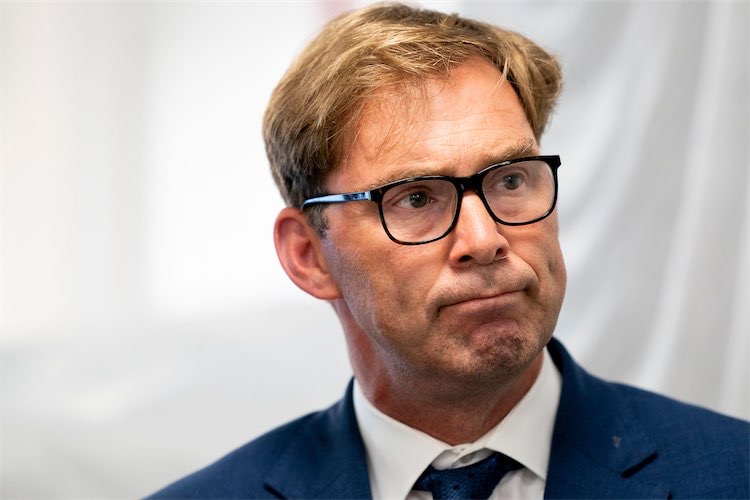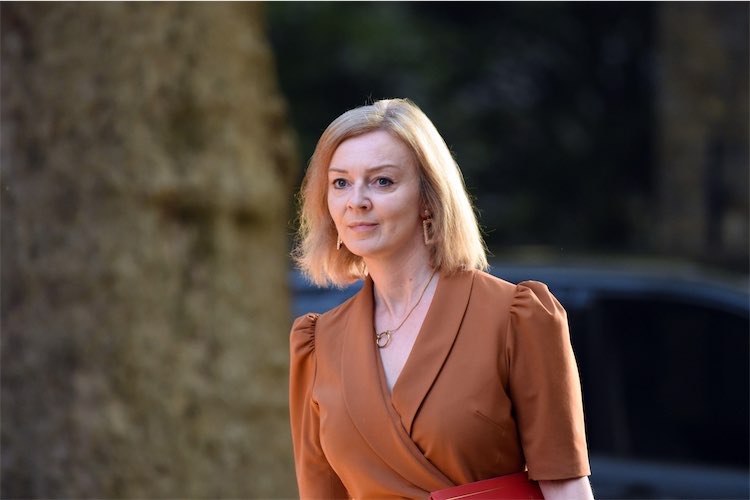Former Middle East Minister Says UK Has "Missed Opportunities" To Bring Stability To Yemen
Houthi supporters attended a protest against the United States-led airstrikes on 12 January (Alamy)
6 min read
As the UK and US continue to carry out joint air strikes against the Houthis in Yemen to little avail, former Minister for the Middle East Tobias Ellwood has warned that the UK government must learn from past mistakes in the region.
The Houthis, an Iran-backed rebel group, launched missile attacks in the Red Sea after Israel launched its attacks on Gaza. They claimed they were targeting Israeli-owned ships, but with much of the world's shipping passing through the Red Sea, many of the ships hit had no connections with Israel.
On Monday, the US and UK carried out their second joint air strike operation on Houthi targets in retaliation, aiming to deter the Houthis from causing further disruption to international trade. Following their first joint operation, Prime Minister Rishi Sunak told the Commons last week that without UK and US intervention, international security would have been weakened. However, later in the week, US President Joe Biden admitted that the air strikes had so far not worked to deter the Houthis from continuing to operate in the Red Sea.
Tobias Ellwood, Conservative MP for Bournemouth East, was Parliamentary Under-Secretary of State for Middle East and North Africa between 2014 and 2017, and was then the chair of the Defence Committee until last year, when he resigned after making controversial comments about Afghanistan being a “country transformed” since the Taliban seized power in 2021.
He told PoliticsHome that he thought it was “right” for the UK to carry out military action against the Houthis, but said the question should now be whether the UK government will “bother to lean in and understand the geopolitics of the country and try to finally end the civil war”.
According to Ellwood, the UK should have learned lessons from its past interventions in the region that showed the need for more specialised personnel who have a greater understanding of the complex local cultures and history.
“We used to have something called the ‘camel corps’: it was the ability in the Foreign Office to have Arabist specialists who lived and breathed this,” Ellwood explained.
“These are all people that learned the language, studied it, and appreciated the difference of the cultures and really could then make a difference.
“The Americans didn't do it in the same way, they just sent ambassadors, political appointments that don't even have any understanding of the place they then go to."
The former minister added that with a specialised wing of the Foreign Office, the UK had been able to gain the trust of local people "in a way that no other nation in the world could do".
Ellwood described there as having been a “missed opportunity” for the UK to bring stability to Yemen around 2017, when he nearly signed a deal between Yemen, Saudi Arabia, Oman, UAE, US and UK before being moved from the Foreign Office to the MoD.
 Tobias Ellwood resigned as chair of the Defence Select Committee last year following criticism of his remarks about the Taliban (Alamy)
Tobias Ellwood resigned as chair of the Defence Select Committee last year following criticism of his remarks about the Taliban (Alamy)
Reflecting on his time Minister for the Middle East, Ellwood admitted that more should have been done then to avoid the escalation of violence and the subsequent humanitarian disasters that have gripped Yemen and the wider region.
“It makes you wonder, going back to when I was there, why we didn't do more to put that fire out? Why didn't we do more to solve that problem?” he asked.
Having held three different government positions in the space of five years, Ellwood said the “astonishing churn” of ministers in the Ministry of Defence (MoD) and the Foreign Office had caused a “big breakdown” in the relationships between the UK and countries across the world.
“We are terrible at allowing people to advance, develop expertise,” he said.
“There's an opportunity for Britain to really return to making its mark of influence, in the backchannels, behind the scenes, understanding what's going on, sorting out these issues. And that's what we really were great at.”
It is generally recognised in the region that the UK is “no longer batting at its weight”, according to Dr Elisabeth Kendall, an Arabic and Islamic Studies expert who chairs a grassroots NGO in east Yemen and has worked with and advised the UN, NATO, and the British and US militaries.
Having spent time living among the Houthis, Kendall said that she had learned that “we can't judge the Houthis by our own logic” and that there was “strong evidence” to show the Houthis would not stick to any deal struck with adversaries.
“Military action probably is called for but I don't think it's a good idea to be doing it in the way that we are,” she told PoliticsHome.
Speaking after the latest strikes against the Houthi rebels, Foreign Secretary Lord David Cameron repeated that they had sent the "clearest possible message" that the Houthis must stop attacking ships in the Red Sea and that the West would not be intimidated. However, Kendall insisted that this would only have the “opposite effect”: “The Houthis thrive on being publicly badged as fighting the United States and its allies, so we're just helping them."
She added that the "public" nature of air strikes would only serve to entrench Houthi narratives of the UK and the US as aggressors, arguing that UK military special forces should be greater utilised if Britain is to again be considered a big player in world affairs.
“The UK is no longer considered a positive, skillful, and intelligent force in the region. Our reputation is nothing close to what it was.”
Describing the situation as a serious dilemma for the UK government, Kendall gave her assessment that it was "never going to be a quick war" and that there would be "no easy wins", since quashing Houthi violence would be inextricably linked with the ongoing war between Israel and Hamas in Gaza. Putting on pressure for a ceasefire in Gaza might, she suggested, therefore be one of the only solutions available.
Kendall also explained that the UK historically had a large part to play in the ongoing violence in the area, after the UK government decided to reinstate the sale of weapons to Saudi Arabia for use against Yemen – a decision taken by former prime minister Liz Truss when she was international trade secretary in 2020.
 Liz Truss was Secretary of State for International Trade between 2019 and 2021 (Alamy)
Liz Truss was Secretary of State for International Trade between 2019 and 2021 (Alamy)
“We were very much behind the Saudi-led coalition fighting the Houthis in Yemen, we were selling weapons,” Kendall said.
“When Liz Truss said it's okay to reinstate our sale of weapons to the Saudis because there was no pattern of violations, there had already been five consecutive annual reports by the UN specialist panel, each of which had spotted that the Saudis had been causing civilian deaths with poor targeting and pointed out violations of international law.”
In Ellwood’s view, this is one of the reasons why the UK has an “obligation” to the region, telling PoliticsHome that the government needed to learn from its previous failures in not following through carefully and effectively with military interventions.
“We sold [the Saudis] all this military equipment and they put their hands up and admitted they didn't know how to use high tech, conventional warfare in order to achieve a political outcome,” he said.
“So they bombed from altitude, but didn't achieve the results they wanted to – and we could have played a much greater role in allowing their military might to be better utilised for political gain.”
The MoD has been contacted for comment.
